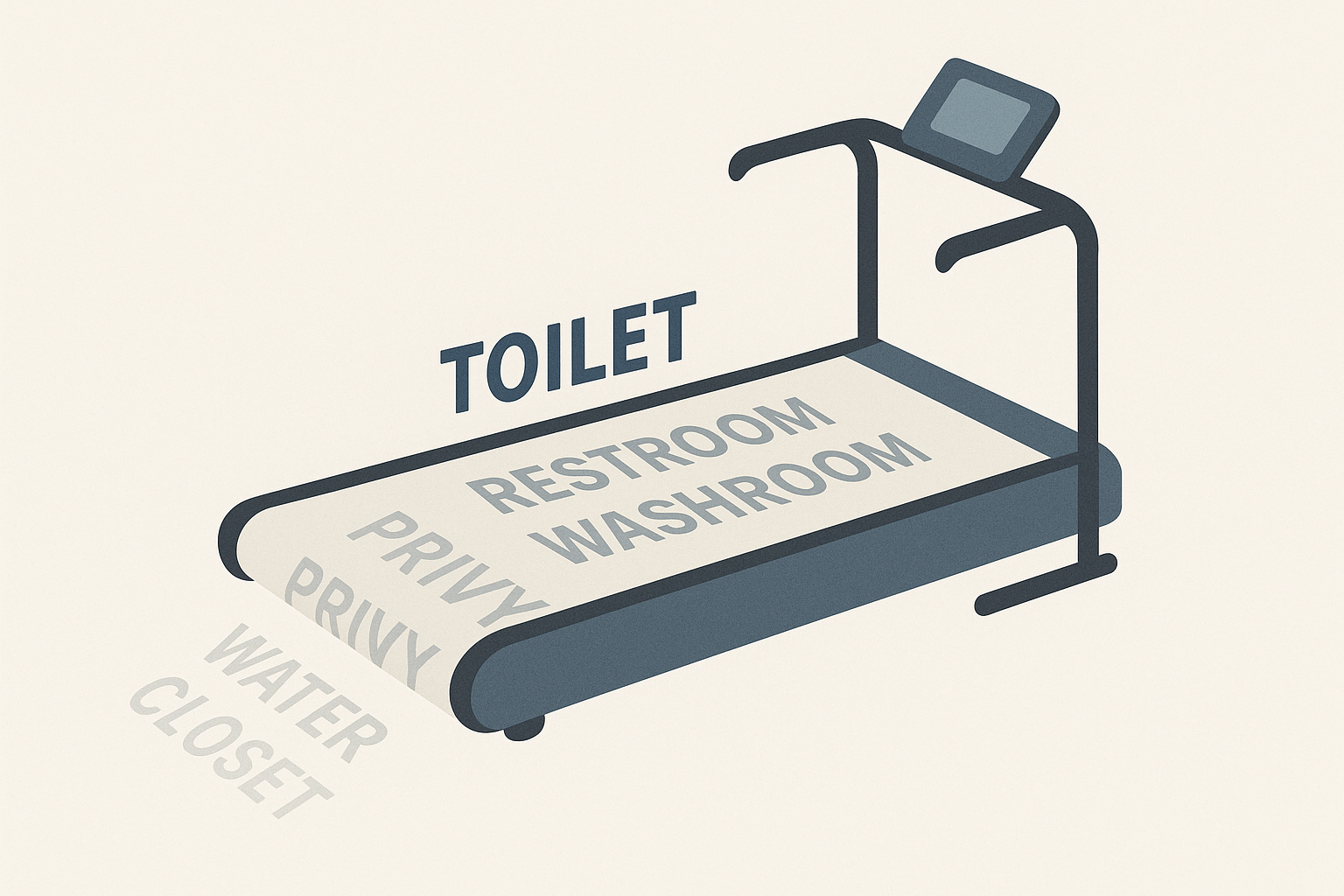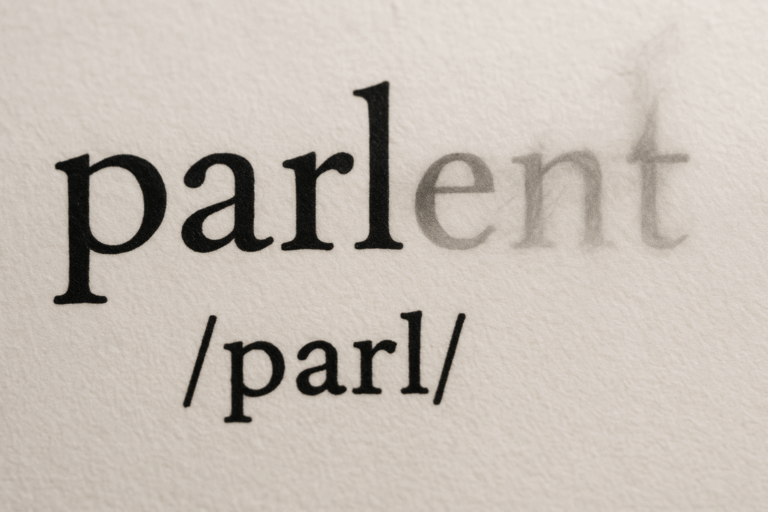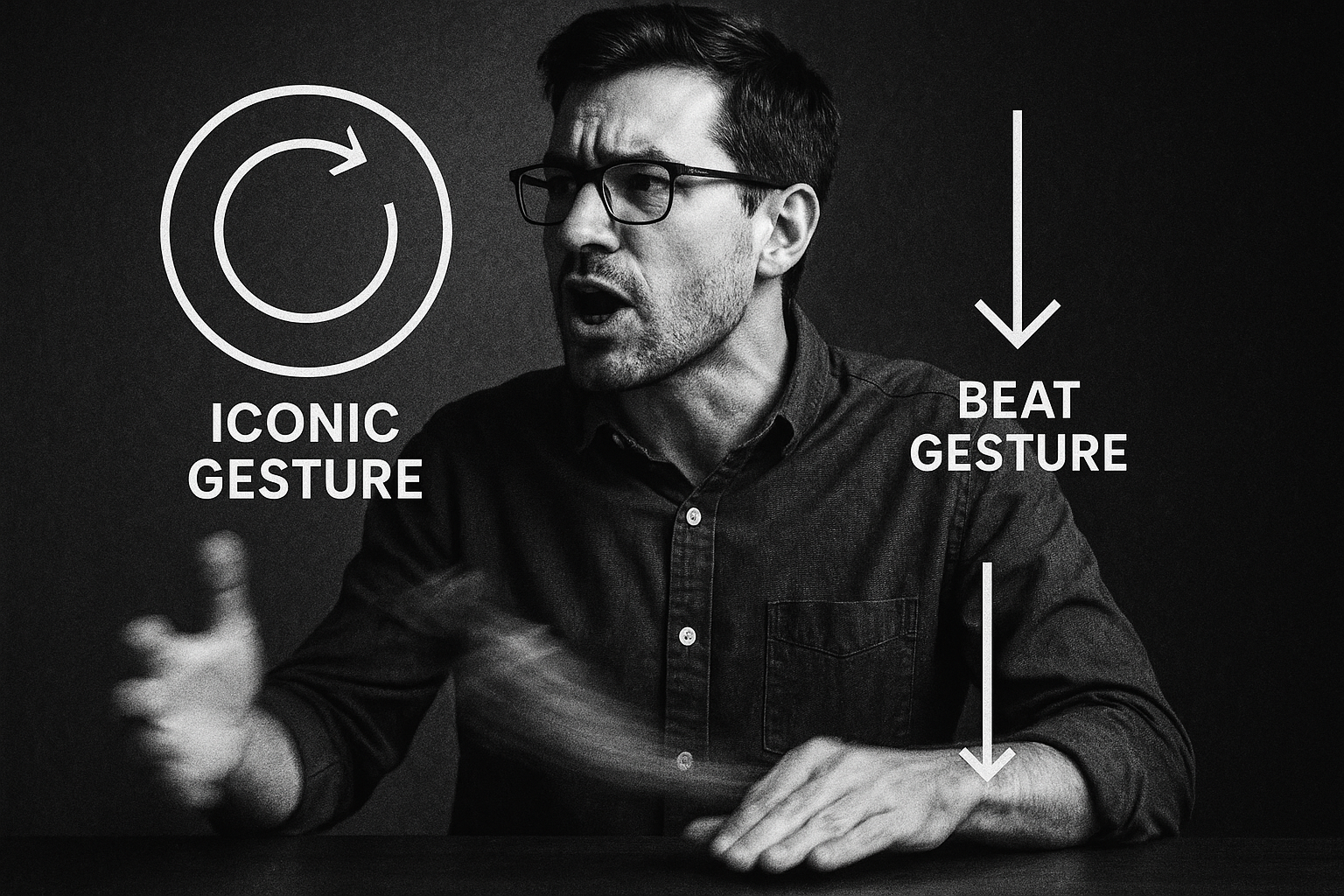The Polite Word That Became a Dirty Word
Have you ever paused before asking for the location of a toilet? You probably have. Depending on where you are and who you’re with, you might ask for the “restroom,” the “bathroom,” the “washroom,” or maybe the “little boys’/girls’ room.” In the UK, you might ask for the “loo.” On a plane, it’s the “lavatory.”
Why so many names for one simple facility? It’s because we’re uncomfortable with the reality of what it’s for. And in our quest for a polite, clean-sounding substitute, we have set ourselves upon what linguist Steven Pinker famously dubbed the “euphemism treadmill.”
The concept is simple yet profound: we invent a new, neutral word for an uncomfortable topic. But over time, the word becomes associated with the very unpleasantness it was meant to conceal. It gets contaminated. And so, we abandon it and invent another new, neutral word. The treadmill keeps running, but we never truly escape the taboo.
The Lifecycle of a Euphemism: A Trip to the Loo
There is no better illustration of the euphemism treadmill than the very room we hesitate to name. Let’s trace the journey of some of its former and current labels.
The word toilet itself is a perfect example. It entered English from the French toilette, which meant “a small cloth” or the act of dressing and grooming at a dressing table. It was a delicate, high-society term. To “make one’s toilet” meant to get dressed and do your hair. By extension, the room where this happened became the toilet. But as the word became more directly associated with the porcelain fixture and its primary use, its polite veneer wore off. Today, in many contexts, the word “toilet” is considered blunt and slightly uncouth—the very thing it was invented to avoid.
So, we moved on:
- Lavatory: From the Latin lavare, “to wash.” A perfectly clinical and clean-sounding word. But its association with bodily functions made it feel sterile and technical. Now it’s mostly confined to airplanes and other public transport.
- Privy: From the Latin privatus, meaning “private.” It was once a standard term for a private place. Now it conjures images of a rustic, probably smelly, outhouse. The negative association completely took over.
- Water Closet (W.C.): A purely functional, Victorian-era term describing the technology: a closet with a water-based flushing mechanism. It was a triumph of engineering and sanitation, but now sounds comically dated.
- Restroom/Bathroom/Washroom: These are our current champions of politeness. They are also beautifully evasive. Are you actually resting? Is there always a bath inside? The words are successful precisely because they are often inaccurate. They direct our minds to a secondary, more pleasant activity (resting, bathing, washing hands) rather than the primary, taboo one.
How long until “restroom” starts to feel too direct? Only time will tell, but the treadmill suggests its days as a perfectly neutral term are numbered.
The Social and Psychological Engine
The euphemism treadmill isn’t just a linguistic curiosity; it’s powered by deep-seated psychological and social forces. The process, known as pejoration or “semantic drift,” happens for a few key reasons.
1. Contamination by Concept: The core driver is association. Language doesn’t change reality; reality changes language. No matter how pristine a new word is, it is eventually stained by the taboo it represents. The negative feelings we have about death, excrement, or poverty don’t disappear when we invent a new word for them; they simply transfer to the new label. The word “retarded,” from the Latin for “to slow down,” was once a neutral clinical term. Through its association with a marginalized group and its eventual use as an insult, it became deeply offensive. The concept contaminated the word.
2. Social Signaling and In-Group Status: Using the “correct” modern euphemism signals that you are sensitive, educated, and socially aware. When you use a term like “person with a disability” instead of the older “handicapped,” you are signaling empathy and membership in a modern, respectful social group. Conversely, using an outdated term like “crippled” or “colored” can instantly mark you as old-fashioned, insensitive, or bigoted. This pressure to use the “right” words to maintain social standing keeps the treadmill spinning.
3. The Desire to Sanitize Reality: Euphemisms provide cognitive distance. They allow us to discuss uncomfortable topics without feeling their full emotional weight. A company doesn’t “fire” hundreds of employees; it engages in “downsizing,” “right-sizing,” or creating “synergies.” A person doesn’t die; they “pass away,” “move on,” or are “no longer with us.” These softer words are a linguistic balm, temporarily soothing the harshness of reality for both the speaker and the listener.
Is the Treadmill Inevitable?
In a word: yes. As long as humans have taboos, we will have euphemisms. And as long as we have euphemisms, they will be running on this inevitable treadmill. It’s a fundamental feature of how our minds and societies use language to navigate the world’s unpleasant corners.
But that doesn’t mean the process is pointless. While the treadmill itself may be constant, the reasons for changing our words can reflect genuine social progress. The evolution of language around disability, for example, from cripple to handicapped to disabled person to person with a disability, shows a deliberate and positive shift. It’s an attempt to move from defining people by their condition to placing their humanity first. The motivation is not just squeamishness, but respect.
Ultimately, the euphemism treadmill reveals a core truth about language: it is a tool for describing reality, not a magic wand for changing it. We can put a fresh coat of paint on a difficult concept, but the underlying reality will always, eventually, bleed through. And when it does, we’ll be right there, ready to invent a new word, step back on the treadmill, and start walking all over again.








